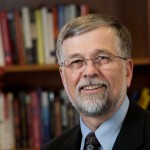 Royce Engstrom
Royce Engstrom
The University of Montana, President
In his role as President, Dr. Engstrom has an indirect influence on science education. His background is in science, however, and he is keenly interested in improving science education through policy, resource allocation, and vision. Dr. Engstrom has a long history of involvement is undergraduate research and curriculum development around active learning. He was a member of a SENCER team at his previous institution.
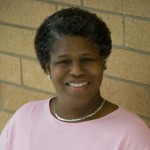 Julie Johnson
Julie Johnson
National Science Foundation, Program Director
Dr. Johnson is a Program Director at the NSF in the Division of Research on Learning in Formal in Informal Settings. As the former Chair of Museum Leadership at Science Museum of Minnesota, she worked closely with the education department staff as they assessed current programs and developed new ones. She provided professional development (e.g., program development, strategic planning, grant writing) to staff in the Youth Science Center. Second, Julie serves on St. Paul’s Sprockets Leadership Group, which provides strategic direction to Saint Paul’s out-of-school time network. Previously Julie was the VP of Education at the New Jersey State Aquarium and prior to that a middle school math and science teacher at the Pennsylvania School for the Deaf.
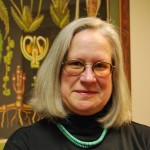 Sue Ellen McCann
Sue Ellen McCann
KQED, Executive in Charge of Science
KQED is the public broadcasting station in San Francisco. The KQED team is the largest journalism and education unit in California producing science news and features for TV, radio, web and social media as well as professional development for educators and interactive products for learning environments. Ms. McCann specializes in multi-platform productions and has a long and successful history working on local and national media projects and informal science education initiatives. The team has recently been honored with awards from AAAS, the Society of Environmental Journalists, the Society of Professional Journalists and the Northern California Emmy’s among others. She is a Co-PI for the Center for the Advancement of Informal Science Education (CAISE), and serves as the NSF PI for QUEST, a six-station public media science and environment reporting and education collaborative.
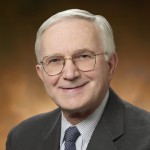 Carlo Parravano
Carlo Parravano
Dr. Parravano served as Executive Director of the Merck Institute for Science Education (MISE) from 1992 to 2012. AT MISE he was responsible for the planning, development and implementation of numerous initiatives to improve science education. To that end, he worked with his MISE colleagues to: design and implement professional development programs to enhance teachers’ and administrators’ knowledge and skills––with an emphasis on effective science instruction and leadership; provide access to instructional materials and resources to support teachers in their classrooms; build strong professional communities committed to reformed practice within and across schools and districts; and create local, state, and national policy environments that support an effective science program.
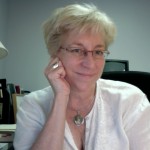 Eliza Reilly
Eliza Reilly
National Center for Science and Civic Engagement, Director of Programs
As former director of a college museum with a diverse collection of artifacts and materials, we collaborate with all departments, including science, computer science, and mathematics to present exhibitions that serve the curriculum broadly. In the field of science education Dr, Reilly is co-editor of the on-line journal Science Education and Civic Engagement, an International Journal (SECEIJ) and co-editor of the SENCER curriculum model series.
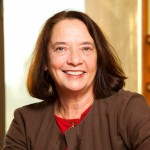 Elizabeth Stage
Elizabeth Stage
University of California, Berkeley, Lawrence Hall of Science, Director
Dr. Stage is an educator who serves as the enthusiastic conductor of a talented orchestra. She’s taught toddlers, middle school students, and graduate students; done research and evaluation; led professional development and public programs in science, mathematics and computer education. Dr. Stage has also worked on standards, assessment, and professional development in science and mathematics education at the state, national, and international levels. She’s on the steering committee of the Coalition for Science After School and serves as Retiring Chair of the Education Section of American Association for the Advancement of Science and the board of trustees of the Developmental Studies Center.
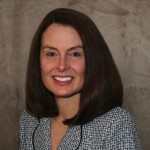 Ann Staton
Ann Staton
Texas Woman’s University, College of Arts & Sciences, Dean
As an academic administrator whose field is not in science, Dr. Staton considers herself a facilitator of science education. As dean of the College of Arts & Sciences at Texas Woman’s University, she has a twofold role in science education. First, she advocates for the STEM disciplines, for enhanced student scientific learning, and for bringing (and graduating) more students, especially women, into science fields. Second, as part of our College core mission, she is committed to fostering social responsibility, civic engagement, and global citizenship in all of our students. Dr. Staton’s advocacy and commitments are characterized by providing opportunities, support, and encouragement to faculty and students in the sciences, as well as by facilitating initiatives and projects in the sciences (e.g., bringing speakers to campus, supporting faculty & student participation in SSI and SENCER DC conferences, encouraging curriculum redesign and “SENCERIZING” courses, encouraging development of a certificate program in science, sustainability, and society). Additionally, in her role as co-director of SCI – Southwest with TWU Chemistry chair Dr. Dick Sheardy, Dr. Staton also facilitates science education through creating opportunities, developing partnerships, and advocating for science and civic engagement.
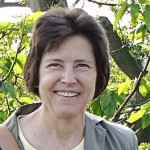 Mercedes Talley
Mercedes Talley
W.M. Keck Foundation, Program Director
Ms. Talley is a Program Director for Science and Engineering Research as well as for Undergraduate Education at the W. M. Keck Foundation in Los Angeles. In this capacity she reviews and advises on grant applications for cutting-edge research projects nationwide and for distinctive undergraduate projects in the western USA. She also advises on applications from ISE providers in Southern California. Formerly, as a grades 6-12 science teacher, she developed extensive hands-on curricula for earth, life and physical sciences. Her original training and career was as an environmental engineer in Alaska and Southern California.
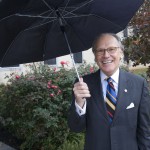 Joe Witte
Joe Witte
George Mason University, Climate Change Communication, Researcher
Outreach for GMU’s, AMS/NWA’s & NASA’s efforts to utilize local TV meteorologists as climate change educators in their respective markets. Outreach consists emailing TV forecasters timely short forms of NASA earth science research press releases with an emphasis on accompanying visual content: images and colorful scientific animations for on-air and posting on station web sites. According to the National Research Council, people are most likely to benefit from ISE communication when watching television when placed in these contexts: (1) engage audiences emotionally; (2) explain science concepts and encourage audiences to explain them; (3) teach scientific methods and reasoning, not just share results.
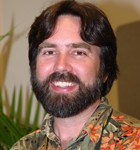 Tom Wood
Tom Wood
George Mason University, Associate Professor; Environmental Studies on the Piedmont, Director
As a Professor at Mason, Dr. Wood initiated the development of a formal relationship with the Smithsonian Conservation Biology Institute that has resulted in the joint building of a resident teaching facility at the SCBI in Front Royal, Virginia. The Smithsonian Mason Semester program is a residential, full credit academic semester in Conservation Studies that is interdisciplinary and applied and focuses on current conservation issues on a global scale. As Director of Environmental Studies on the Piedmont, he manages a natural preserve providing education and research opportunities for Mason students and K-12 teachers and students. Currently they are working with 5th grade teachers and Mason pre-service teachers to develop the capacity to teach science based outdoor experiential learning opportunities and influence attitudes and learning styles of elementary school students.
